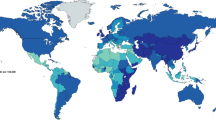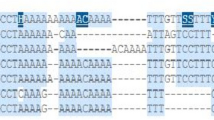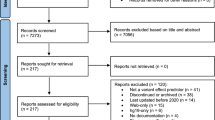Abstract
Glutathione S-transferase (GST) enzymes are known to metabolize tobacco-related carcinogens. Previous studies on the association of functional polymorphisms of GST genes with esophageal squamous cell carcinoma have yielded conflicting but overall null results. A few studies of esophageal adenocarcinoma were likewise conflicting, but the scarcity of data is striking. We aimed to study associations of the GSTM1 and GSTT1 null deletion polymorphisms as well as the GSTP1 Ile105Val polymorphism with risks for esophageal and gastric cardia cancers. DNA was prepared from 96 and 79 cases of esophageal adenocarcinoma and squamous cell carcinoma, respectively, 126 cardia cancer cases, and 471 population-based controls. Pyrosequencing typed the GSTP1 Ile105Val polymorphism, while multiplex PCR detected GSTM1 and GSTT1 deletions. Logistic regression modeling estimated odds ratios (ORs) with 95% confidence intervals (CIs). None of the studied polymorphisms were related to the risk of esophageal adenocarcinoma, but the variant GSTP1 Val105 allele was associated with an increased risk of esophageal squamous cell carcinoma (OR = 1.7; 95% CI 1.0–2.9) and tended to be weakly, positively linked to cardia cancer (OR = 1.4; 95% CI 0.9–2.1). Finally, we performed a meta-analysis and found that GSTP1 polymorphism seems to be associated with the risk of esophageal squamous cell carcinoma among Caucasian population (OR = 1.4; 95% CI 1.0–2.2; p value for heterogeneity test 0.34).
Similar content being viewed by others
References
Hansson LE, Sparen P, Nyren O (1993) Increasing incidence of both major histological types of esophageal carcinomas among men in Sweden. Int J Cancer 54(3):402–407
Blot WJ, McLaughlin JK (1999) The changing epidemiology of esophageal cancer. Semin Oncol 26(5 Suppl 15):2–8
Hayes JD, Pulford DJ (1995) The glutathione S-transferase supergene family: regulation of GST and the contribution of the isoenzymes to cancer chemoprotection and drug resistance. Crit Rev Biochem Mol Biol 30(6):445–600
Watson MA, Stewart RK, Smith GB, Massey TE, Bell DA (1998) Human glutathione S-transferase P1 polymorphisms: relationship to lung tissue enzyme activity and population frequency distribution. Carcinogenesis 19(2):275–280
Harries LW, Stubbins MJ, Forman D, Howard GC, Wolf CR (1997) Identification of genetic polymorphisms at the glutathione S-transferase Pi locus and association with susceptibility to bladder, testicular and prostate cancer. Carcinogenesis 18(4):641–644
Garte S, Gaspari L, Alexandrie AK, Ambrosone C, Autrup H, Autrup JL, Baranova H, Bathum L, Benhamou S, Boffetta P et al (2001) Metabolic gene polymorphism frequencies in control populations. Cancer Epidemiol Biomarkers Prev 10(12):1239–1248
Boccia S, La Torre G, Gianfagna F, Mannocci A, Ricciardi G (2006) Glutathione S-transferase T1 status and gastric cancer risk: a meta-analysis of the literature. Mutagenesis 21(2):115–123
Chenevix-Trench G, Young J, Coggan M, Board P (1995) Glutathione S-transferase M1 and T1 polymorphisms: susceptibility to colon cancer and age of onset. Carcinogenesis 16(7):1655–1657
Deakin M, Elder J, Hendrickse C, Peckham D, Baldwin D, Pantin C, Wild N, Leopard P, Bell DA, Jones P et al (1996) Glutathione S-transferase GSTT1 genotypes and susceptibility to cancer: studies of interactions with GSTM1 in lung, oral, gastric and colorectal cancers. Carcinogenesis 17(4):881–884
La Torre G, Boccia S, Ricciardi G (2005) Glutathione S-transferase M1 status and gastric cancer risk: a meta-analysis. Cancer Lett 217(1):53–60
Saadat M (2006) Genetic polymorphisms of glutathione S-transferase T1 (GSTT1) and susceptibility to gastric cancer: a meta-analysis. Cancer Sci 97(6):505–509
Seidegard J, Pero RW, Markowitz MM, Roush G, Miller DG, Beattie EJ (1990) Isoenzyme(s) of glutathione transferase (class Mu) as a marker for the susceptibility to lung cancer: a follow up study. Carcinogenesis 11(1):33–36
Brockmoller J, Kerb R, Drakoulis N, Nitz M, Roots I (1993) Genotype and phenotype of glutathione S-transferase class mu isoenzymes mu and psi in lung cancer patients and controls. Cancer Res 53(5):1004–1011
Heckbert SR, Weiss NS, Hornung SK, Eaton DL, Motulsky AG (1992) Glutathione S-transferase and epoxide hydrolase activity in human leukocytes in relation to risk of lung cancer and other smoking-related cancers. J Natl Cancer Inst 84(6):414–422
Peters WH, Wobbes T, Roelofs HM, Jansen JB (1993) Glutathione S-transferases in esophageal cancer. Carcinogenesis 14(7):1377–1380
Katoh T, Nagata N, Kuroda Y, Itoh H, Kawahara A, Kuroki N, Ookuma R, Bell DA (1996) Glutathione S-transferase M1 (GSTM1) and T1 (GSTT1) genetic polymorphism and susceptibility to gastric and colorectal adenocarcinoma. Carcinogenesis 17(9):1855–1859
Abbas A, Delvinquiere K, Lechevrel M, Lebailly P, Gauduchon P, Launoy G (2004) Sichel F: GSTM1, GSTT1, GSTP1 and CYP1A1 genetic polymorphisms and susceptibility to esophageal cancer in a French population: different pattern of squamous cell carcinoma and adenocarcinoma. World J Gastroenterol 10(23):3389–3393
Cai L, Mu LN, Lu H, Lu QY, You NC, Yu SZ, Le AD, Zhao J, Zhou XF, Marshall J et al (2006) Dietary selenium intake and genetic polymorphisms of the GSTP1 and p53 genes on the risk of esophageal squamous cell carcinoma. Cancer Epidemiol Biomarkers Prev 15(2):294–300
Casson AG, Zheng Z, Porter GA, Guernsey DL (2006) Genetic polymorphisms of microsomal epoxide hydroxylase and glutathione S-transferases M1, T1 and P1, interactions with smoking, and risk for esophageal (Barrett) adenocarcinoma. Cancer Detect Prev 30(5):423–431
Jain M, Kumar S, Rastogi N, Lal P, Ghoshal UC, Tiwari A, Pant MC, Baiq MQ, Mittal B (2006) GSTT1, GSTM1 and GSTP1 genetic polymorphisms and interaction with tobacco, alcohol and occupational exposure in esophageal cancer patients from North India. Cancer Lett 242(1):60–67
Roth MJ, Abnet CC, Johnson LL, Mark SD, Dong ZW, Taylor PR, Dawsey SM, Qiao YL (2004) Polymorphic variation of Cyp1A1 is associated with the risk of gastric cardia cancer: a prospective case-cohort study of cytochrome P-450 1A1 and GST enzymes. Cancer Causes Control 15(10):1077–1083
Wang Z, Tang L, Sun G, Tang Y, Xie Y, Wang S, Hu X, Gao W, Cox SB, Wang JS (2006) Etiological study of esophageal squamous cell carcinoma in an endemic region: a population-based case control study in Huaian, China. BMC Cancer 6:287
Yang CX, Matsuo K, Wang ZM, Tajima K (2005) Phase I/II enzyme gene polymorphisms and esophageal cancer risk: a meta-analysis of the literature. World J Gastroenterol 11(17):2531–2538
Wideroff L, Vaughan TL, Farin FM, Gammon MD, Risch H, Stanford JL, Chow WH (2007) GST, NAT1, CYP1A1 polymorphisms and risk of esophageal and gastric adenocarcinomas. Cancer Detect Prev 31(3):233–236
Murphy SJ, Hughes AE, Patterson CC, Anderson LA, Watson RG, Johnston BT, Comber H, McGuigan J, Reynolds JV, Murray LJ (2007) A population-based association study of SNPs of GSTP1, MnSOD, GPX2 and Barrett’s esophagus and esophageal adenocarcinoma. Carcinogenesis 28(6):1323–1328
Casson AG, Zheng Z, Chiasson D, MacDonald K, Riddell DC, Guernsey JR, Guernsey DL, McLaughlin J (2003) Associations between genetic polymorphisms of Phase I and II metabolizing enzymes, p53 and susceptibility to esophageal adenocarcinoma. Cancer Detect Prev 27(2):139–146
Lu XM, Yang T, Xu SY, Wen H, Wang X, Ren ZH, Zhang Y, Wang W (2006) Glutathione-S-transferase M1 polymorphisms on the susceptibility to esophageal cancer among three Chinese minorities: Kazakh, Tajik and Uygur. World J Gastroenterol 12(48):7758–7761
Lu XM, Zhang YM, Lin RY, Arzi G, Wang X, Zhang YL, Zhang Y, Wang Y, Wen H (2005) Relationship between genetic polymorphisms of metabolizing enzymes CYP2E1, GSTM1 and Kazakh’s esophageal squamous cell cancer in Xinjiang, China. World J Gastroenterol 11(24):3651–3654
van Lieshout EM, Roelofs HM, Dekker S, Mulder CJ, Wobbes T, Jansen JB, Peters WH (1999) Polymorphic expression of the glutathione S-transferase P1 gene and its susceptibility to Barrett’s esophagus and esophageal carcinoma. Cancer Res 59(3):586–589
Lagergren J, Bergstrom R, Lindgren A, Nyren O (1999) Symptomatic gastroesophageal reflux as a risk factor for esophageal adenocarcinoma. N Engl J Med 340(11):825–831
Ye W, Kumar R, Bacova G, Lagergren J, Hemminki K, Nyren O (2006) The XPD 751Gln allele is associated with an increased risk for esophageal adenocarcinoma: a population-based case–control study in Sweden. Carcinogenesis 27(9):1835–1841
Lin D, Tang Y, Peng Q, Lu S, Ambrosone C, Kadlubar F (1998) Susceptibility to esophageal cancer and genetic polymorphisms in glutathione S-transferases T1, P1, and M1 and cytochrome P450 2E1. Cancer Epidemiol Biomarkers Prev 7(11):1013–1018
Hu X, Xia H, Srivastava SK, Herzog C, Awasthi YC, Ji X, Zimniak P, Singh SV (1997) Activity of four allelic forms of glutathione S-transferase hGSTP1–1 for diol epoxides of polycyclic aromatic hydrocarbons. Biochem Biophys Res Commun 238(2):397–402
Eaton DL, Bammler TK (1999) Concise review of the glutathione S-transferases and their significance to toxicology. Toxicol Sci 49(2):156–164
Acknowledgments
We are in debt to Dr. Bo Ding for genotyping of GSTP1 gene. This study supported by a grant from Karolinska Institutet. Original case–control study (SECC study) was supported by a grant from the National Institute of Health (R01 CA57947-03) and two grants (4559-B01-01XAA, 4758-B02-01XAB) from the Swedish Cancer Society.
Author information
Authors and Affiliations
Corresponding author
Rights and permissions
About this article
Cite this article
Zendehdel, K., Bahmanyar, S., McCarthy, S. et al. Genetic polymorphisms of glutathione S-transferase genes GSTP1, GSTM1, and GSTT1 and risk of esophageal and gastric cardia cancers. Cancer Causes Control 20, 2031–2038 (2009). https://doi.org/10.1007/s10552-009-9399-7
Received:
Accepted:
Published:
Issue Date:
DOI: https://doi.org/10.1007/s10552-009-9399-7




